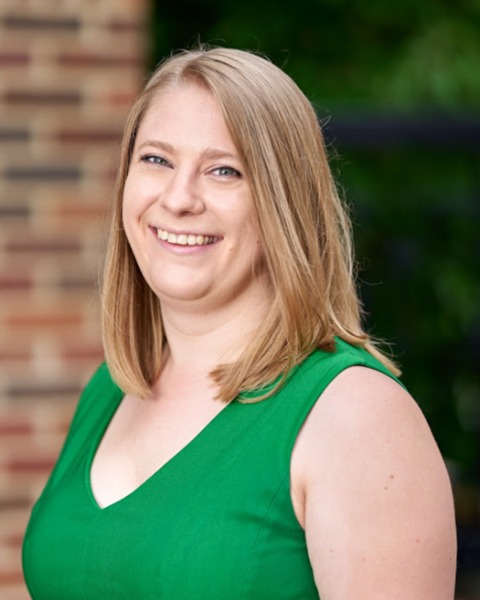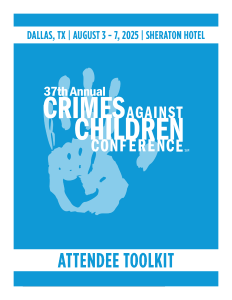Workshop
Marriott
Communicating with Children with Disabilities (REPEAT)
Wednesday, August 6, 2025
12:00 PM – 1:15 PM CT
Location: Plaza A
Earn 1.25 Credit Hours
Target Audience: Law Enforcement, Prosecutor, Victim Advocate, Forensic Interviewer, CPS

Kate Homan (she/her/hers)
Senior Consultant
Modell Consulting Group, LLC
Primary Presenter(s)
This workshop is intended for multidisciplinary professionals seeking to advance their understanding of basic communication techniques that are reliable, legally defensible, effective, and accommodating for children with disabilities who are alleged victims of abuse or neglect. While the training is not specifically intended for forensic interviewers, it is based on forensic interviewing best practices with considerations and adaptations to account for individual disability, language capacity, and cultural background. Participants will learn about biases and assumptions related to investigating cases involving child victims or witnesses with disabilities, abuse dynamics, pre-interview considerations, question types, and other information on eliciting reliable information from children with disabilities.
Learning Objectives:
- Participants will be able to recall common biases regarding investigating cases with children with disabilities.
- Participants will be able to discuss pre-interview considerations for cases involving child victims and witnesses with disabilities.
- Participants will be able to identify accommodations, adaptations and considerations for communicating with children with disabilities.

